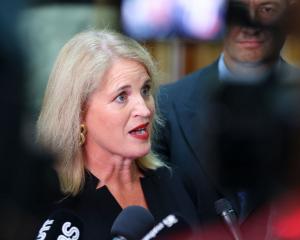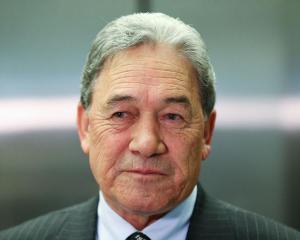
"The endorsement I'm seeking will be in line with the decision made by Labour Party members at this weekend's conference that I must have at least 60 per cent support of the caucus,'' he said.
"I'm holding this vote tomorrow to demonstrate that I have the support of my caucus and to put recent speculation to bed. It is important that these matters are resolved so that Labour can lift its sights to focus on the serious challenges facing the country, including jobs, education and housing affordability,'' Mr Shearer said.
A formal endorsement vote would also still be held in February in accordance with new rules approved by party members.
The party's annual conference was bogged down in controversy over the leadership, after David Cunliffe refused to rule out a challenge.
Mr Shearer had already indicated he would force a vote on the issue earlier than the scheduled February confidence vote to ensure it did not plague the party for months to come.
Although Mr Cunliffe said this morning he would not mount an imminent challenge, he would not rule out such a move in February and Mr Shearer has said that does not change the need for an immediate endorsement vote.
Former party president Mike Williams said earlier today the party's leadership question was settled at its weekend conference.
"The bulk of people who were at that conference thought the David Shearer speech really settled that,'' Mr Williams said on RNZ today.
There was only one disagreement and that was over the the percentage required to provoke a leadership vote.
"It was a good old-fashioned knock-down drag-out argument and they voted that 40 per cent of the caucus could initiate a leadership process next February.''
"However the undertone of what was going on was not that happy - there had been a complicated almost chaotic series of votes on how the leader would be chosen.''
Although Mr Cunliffe said this morning he would not mount an imminent challenge, he would not rule out such a move in February and Mr Shearer has said that does not change the need for an immediate endorsement vote.
Indications from MPs are that Mr Shearer has the necessary support to get that endorsement - even under a rule change which will require at least a 60 per cent plus one endorsement.
It is also now clear that Mr Cunliffe - and probably some of his allies - face a demotion and Mr Shearer could bring forward a planned reshuffle.
Some Labour MPs are openly gunning for Mr Cunliffe and have called his actions "dishonest".
Labour MP and senior whip Chris Hipkins said Mr Cunliffe had "openly undermined the current leadership" and should either openly challenge Mr Shearer or leave.
"He's made it clear he intends to challenge for the leadership. I think saying he's not going to do so until February is dishonest and disingenous. He needs to bring it on."
He said Mr Cunliffe should be open and upfront about his intentions.
"Weasel words about supporting the leader for now simply don't cut it."
He said Mr Cunliffe had actively undermined two leaders in a row - Mr Goff and now Mr Shearer.
"That has made it impossible for him to continue in a senior role within the Labour team."
He said Mr Cunliffe's allies should also "take a long, hard look at themselves".
"We want to go into the next election campaign as a unified team, ready to make David Shearer the Prime Minister. If they're not willing to sign up for that, they need to think about whether they are sticking around."
He said he believed the majority of caucus supported his views. Those views were echoed by his colleague Damien O'Connor on Radio NZ this morning after Mr Cunliffe's statements.
Mr Shearer is still expected to ask caucus to endorse his leadership within the next week - and to move swiftly to discipline Mr Cunliffe and possibly some of his supporters.
A senior Labour MP also described Mr Cunliffe as "a gone banana" and claimed he only withdrew from an immediate challenge because it was clear
Mr Shearer had overwhelming support.
The MP said the caucus had tolerated three years of Mr Cunliffe's subversion when Phil Goff was leader and from now on, even if he was well behaved on the back benches, his behaviour had alienated his colleagues such that a mid-bench position would henceforth be the most he could expect.
Shearer's supporters had counselled against putting Mr Cunliffe on the front bench when Mr Shearer defeated him last December. That decision upset many of Shearer's loyalists, such as Clayton Cosgrove who was ranked lower than Mr Cunliffe as a result.
- By Claire Trevett, APNZ staff










